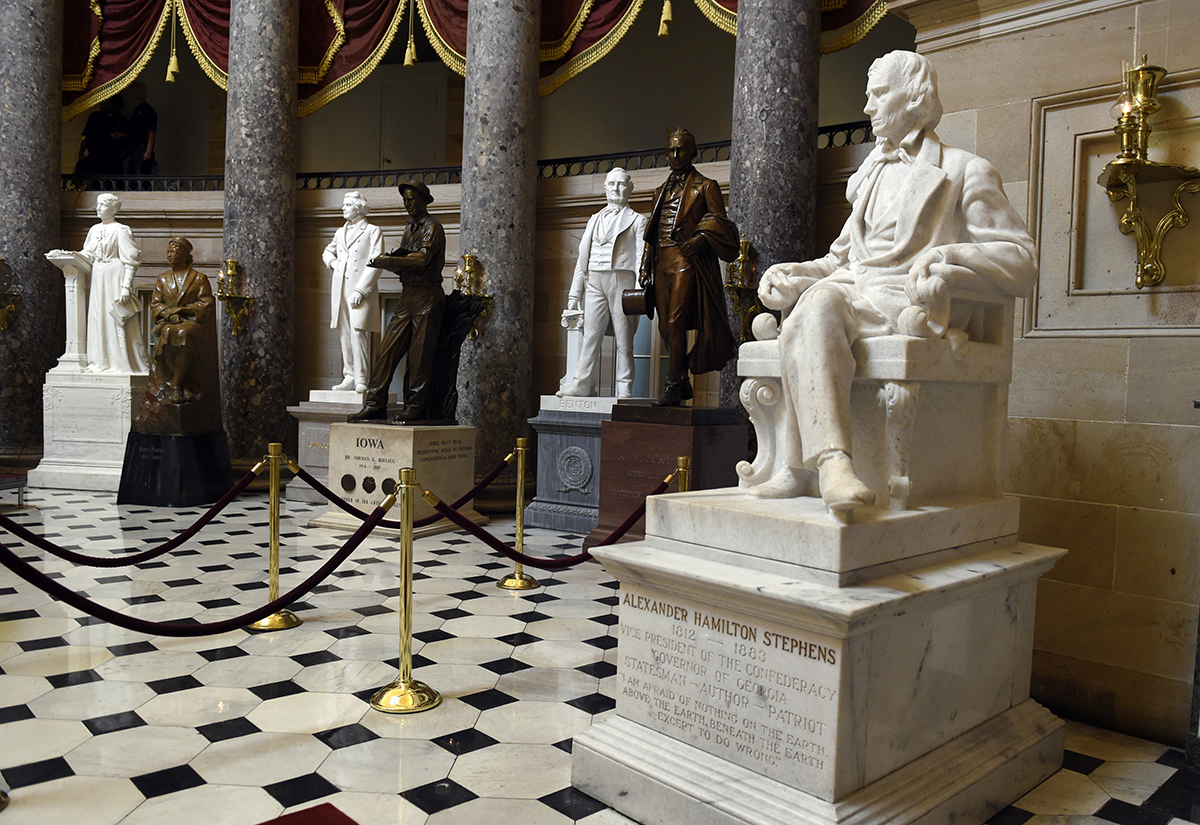Descendants of Confederate Vice President Alexander H. Stephens wrote a letter calling for the removal a statue honoring Stephens in the U.S. Capitol.
Like us on Facebook
Two brothers, Alexander and Brendan Stephens, shared their open letter to Gov. Nathan Deal and the Georgia General Assembly with the Atlanta Journal-Constitution Thursday.
“Confederate monuments need to come down. Put them in museums where people will learn about the context of their creation, but remove them from public spaces so that the descendants of enslaved people no longer walk beneath them at work and on campus,” the brothers wrote. “Some of our relatives may disagree with our proposal, but they instilled values in us that made it possible for us to write these words: remove the statue of Alexander H. Stephens from the U.S. Capitol.”
Stephens’s statue is part of the National Statuary Hall Collection – which includes a total of 100 statues from each state. Georgia gave the statue to the collection in 1927, according to the Architect of the Capitol.
Before the Civil War, Stephens served as a Whig to the Georgia state Legislature, says the New Georgia Encyclopedia. He is known for his “Cornerstone Speech,” in which he said that slavery was African Americans’ “natural and normal condition.”
Recently, Georgians have petitioned to remove Confederate monuments, flags and streets bearing the name of the Confederacy.
On Aug. 21, protesters took to the streets in downtown Kennesaw, where a Confederate flag had been stolen from the city’s commemorative park. In downtown Atlanta on Aug. 13, masked protesters defaced the Gate City Guard Statue, also known as the Peace Monument, in Piedmont Park. Others marched in solidarity with protestors and victims from Charlottesville, Virginia.
Since then, Atlanta Mayor Kasim Reed said on Aug. 14 he would carefully consider petitions rename streets named after the Confederacy or Confederate leaders.
Alexander Stephens, 29, told the AJC that he and his brother had grown up with a deep appreciation for their family history, but each had unique experiences that led to an unlearning of the history.
“It is not as if we grew up idolizing the Confederacy, but it was state of cognitive dissonance,” he said. “Slavery was wrong, but maybe some of the people who supported it were not so bad. We were taught to look away from it. It was a family tradition that was passed along.”
His open letter to Georgia lawmakers has not yet been received by Deal’s office, the AJC reported.

9(MDAxODM0MDY4MDEyMTY4NDA3MzI3YjkzMw004))









